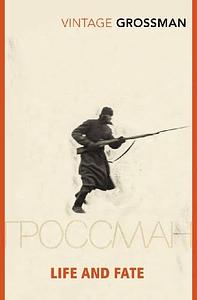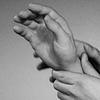Take a photo of a barcode or cover
emotional
inspiring
reflective
slow-paced
Plot or Character Driven:
A mix
Strong character development:
Yes
Loveable characters:
Yes
Diverse cast of characters:
Yes
Flaws of characters a main focus:
Complicated
challenging
dark
emotional
reflective
sad
medium-paced
Plot or Character Driven:
A mix
Strong character development:
Yes
Loveable characters:
Yes
Diverse cast of characters:
Yes
Flaws of characters a main focus:
Yes
challenging
dark
emotional
hopeful
informative
inspiring
reflective
sad
tense
medium-paced
Plot or Character Driven:
Character
Strong character development:
Yes
Loveable characters:
Complicated
Diverse cast of characters:
Yes
Flaws of characters a main focus:
Yes
challenging
dark
emotional
sad
tense
medium-paced
Plot or Character Driven:
A mix
Strong character development:
Complicated
Loveable characters:
Complicated
Diverse cast of characters:
Yes
Flaws of characters a main focus:
Yes
I finished reading Life and Fate a few days ago and I’m still thinking about it. It is extraordinary. I haven’t read anyone better on the impact of war on combatants, civilians and even animals. There are parts of this book that are so powerful you have a physical reaction. I also valued Grossman’s defence of the individual and the right of each person to live their life. When I finished, I wanted to start reading all over again and I know that I will get even more from a re-reading.
Why am I writing? Which truth am I confirming? Which truth do I wish to triumph?
Frankly, I didn't really care for Stalingrad, even though I'm a staunch appreciator of socrealist novels. Too much exposition with no real payoff or consequence led to a bloated novel that couldn't be fully supported by Grossman's excellent prose and depictions of war and the home-front. However, Grossman is at his finest in Life and Fate. His characters shine and dull against fantastically horrible backdrops, all during the year of the Stalingrad counteroffensive.
Time flows into a man or State, makes its home there and then flows away; the man and the State remain, but their time has passed. Where has their time gone? The man still thinks, breathes and cries, but his time, the time that had belonged to him and to him alone, had disappeared.
In my eyes, this book didn't really feel like an outright denouncement of the Stalinist regime, though I didn't really care for Grossman's equivalence of fascism and socialism throughout the philosophical parts of the novel (like okay...). To me, it comes across as a coming-of-age novel for a country — a quasi-bildungsroman of the Soviet Stalinist state.
The history of Russia was no longer the history of the sufferings and humiliations undergone by the workers and peasantry; it was the history of national glory.
What happens to time when we're on the road to victory? What happens to us when it's time for the changing of the guards? How do we understand the time that has passed us? Has it left us behind or has it positioned us to take the future by the horns?
The violence of a totalitarian State is so great as to be no longer a means to an end; it becomes an object of mystical worship and adoration.
Grossman's greatest feat in Life and Fate is how amazingly he tackles the struggle of obedience and submission, whether it be to war, the State, bureaucracy, science, love, the gas chambers, your commanding officer, or "old-school" Bolshevism. His characters breathe and rot underneath the thumb of obedience — Krymov to his aged Bolshevik beliefs, Yevgenia to her rose-colored love, Viktor to his theoretical research, Lyudmila to her first-born son, Sofya to death's end... The list goes on and on. Grossman comments on the most marvelous fact of WW2: that it was a time of obedience during an era of complete social upheaval, whether in the gulags, the homefront, or the concentration camp. It was actually amazing to read through each character's struggles with what it means to be obedient and what it means to be free.
You know as well as we do that nationalism is the most powerful force of our century. Nationalism is the soul of our epoch.
I really enjoyed Grossman's insights on the rot of nationalism on both sides of the war. Obviously, fuck Nazism but at the other end, it was really interesting to see Soviet/Russian chauvinism throughout the book, especially in conversations among senior leadership with respect to the "lesser minority" republics. It was funny as fuck hearing similar discussions a la affirmative action discourse in the United States. However, I think it's really interesting to read this as a denouncement of the Soviet bureaucracy, rather than the State itself. I know Grossman probably didn't see a distinction between the two (as honestly, they could be seen as one and the same), but in Viktor's storyline, we really see him struggle to come to terms with what bureaucracy's final form is. Think of it as a more serious mirror image of Bulgakov's Master and Margarita.
The past is stronger than I am. I can't kill it, I can't forget it. / Every age creates the deity in its own image.
Anyways, this book was fantastic and I gobbled up all 900 pages in less than two weeks. Some scenes brought me to tears, especially the letter from Viktor's mother and Sofya Levinton's unfortunate murder at the Nazi death camp. Viktor's inner turmoil both in love and work was fantastic to read, and I loved the duality of Krymov and Novikov's fate once the turning point of the war came around. All Grossman's characters are haunted by the past and are tasked with this final question: Should they elevate the turbulent past or create a new deity at the precipice of victory?
My top 3 favorite scenes (man, it was so hard to narrow it down):
Frankly, I didn't really care for Stalingrad, even though I'm a staunch appreciator of socrealist novels. Too much exposition with no real payoff or consequence led to a bloated novel that couldn't be fully supported by Grossman's excellent prose and depictions of war and the home-front. However, Grossman is at his finest in Life and Fate. His characters shine and dull against fantastically horrible backdrops, all during the year of the Stalingrad counteroffensive.
Time flows into a man or State, makes its home there and then flows away; the man and the State remain, but their time has passed. Where has their time gone? The man still thinks, breathes and cries, but his time, the time that had belonged to him and to him alone, had disappeared.
In my eyes, this book didn't really feel like an outright denouncement of the Stalinist regime, though I didn't really care for Grossman's equivalence of fascism and socialism throughout the philosophical parts of the novel (like okay...). To me, it comes across as a coming-of-age novel for a country — a quasi-bildungsroman of the Soviet Stalinist state.
The history of Russia was no longer the history of the sufferings and humiliations undergone by the workers and peasantry; it was the history of national glory.
What happens to time when we're on the road to victory? What happens to us when it's time for the changing of the guards? How do we understand the time that has passed us? Has it left us behind or has it positioned us to take the future by the horns?
The violence of a totalitarian State is so great as to be no longer a means to an end; it becomes an object of mystical worship and adoration.
Grossman's greatest feat in Life and Fate is how amazingly he tackles the struggle of obedience and submission, whether it be to war, the State, bureaucracy, science, love, the gas chambers, your commanding officer, or "old-school" Bolshevism. His characters breathe and rot underneath the thumb of obedience — Krymov to his aged Bolshevik beliefs, Yevgenia to her rose-colored love, Viktor to his theoretical research, Lyudmila to her first-born son, Sofya to death's end... The list goes on and on. Grossman comments on the most marvelous fact of WW2: that it was a time of obedience during an era of complete social upheaval, whether in the gulags, the homefront, or the concentration camp. It was actually amazing to read through each character's struggles with what it means to be obedient and what it means to be free.
You know as well as we do that nationalism is the most powerful force of our century. Nationalism is the soul of our epoch.
I really enjoyed Grossman's insights on the rot of nationalism on both sides of the war. Obviously, fuck Nazism but at the other end, it was really interesting to see Soviet/Russian chauvinism throughout the book, especially in conversations among senior leadership with respect to the "lesser minority" republics. It was funny as fuck hearing similar discussions a la affirmative action discourse in the United States. However, I think it's really interesting to read this as a denouncement of the Soviet bureaucracy, rather than the State itself. I know Grossman probably didn't see a distinction between the two (as honestly, they could be seen as one and the same), but in Viktor's storyline, we really see him struggle to come to terms with what bureaucracy's final form is. Think of it as a more serious mirror image of Bulgakov's Master and Margarita.
The past is stronger than I am. I can't kill it, I can't forget it. / Every age creates the deity in its own image.
Anyways, this book was fantastic and I gobbled up all 900 pages in less than two weeks. Some scenes brought me to tears, especially the letter from Viktor's mother and Sofya Levinton's unfortunate murder at the Nazi death camp. Viktor's inner turmoil both in love and work was fantastic to read, and I loved the duality of Krymov and Novikov's fate once the turning point of the war came around. All Grossman's characters are haunted by the past and are tasked with this final question: Should they elevate the turbulent past or create a new deity at the precipice of victory?
My top 3 favorite scenes (man, it was so hard to narrow it down):
- Viktor's phone call with Stalin (I actually gasped out loud at work... LMFAO)
- Yevgenia meeting Novikov in Kuibyshev
- Lyudmila sitting at Tolya's grave
Honorable mentions:
- Mostovsky's experiences in the concentration camp (mainly his conversation with Liss)
- Yevgenia's misadventures trying to get a travel permit in Kuibyshev
- Viktor reading the final letter from his mother
challenging
dark
emotional
informative
reflective
sad
slow-paced
Plot or Character Driven:
Character
Strong character development:
Complicated
Loveable characters:
Yes
Diverse cast of characters:
Yes
Flaws of characters a main focus:
No
Grossman’s Life and Fate was probably one of the best books I’ve read this year.
Grossman’s narrative is massive and comprehensive. Honestly, so much time was spent just trying to keep track of so many characters (there’s a solid few pages at the back just listing character names).
The book is centred on the Battle of Stalingrad and the Shaposhnikov Family. It follows members of this family as they struggle with every aspect of this unique struggle, caught between Nazi inhumanity and Soviet inhumanity.
The main theme of this book is probably that of Kindness and Humanity. The book details very down to earth struggles — losing loved ones, facing bureaucracy, worrying about informants, office politics, affairs, and young love — wrapped up between two despotic and brutal states which treat human life with little value and sell it cheap. Here, kindness excels — the mercy of a Ukranian woman who has experienced the Great Famine helping a Communist (who in part is responsible for her plight), two soldiers on opposite sides not shooting each other after being hit by an artillery shell, calming a young boy in the Gas Chamber, helping to evacuate men from a position which is doomed to fall.
Kindness is faces in opposition to the brutal ideologies of Communism and Fascism which seem to only destroy and eat its own young. However, Kindness is also subordinate to these greater powers — life being the struggle to maintain this small flame as it is relentlessly attacked.
The book is focused on the characters on the Soviet side of conflict — mainly the Jewish Shaposhnikovs — caught between Soviet skepticism and German genocide. Grossman writes with authenticity and with an understanding of the Soviet system. It’s a novel written in its context and could not be written today — for Grossman, it isn’t history, it’s recent events.
At the end, after so many characters are dead, the book talks about moving on. People start new lives elsewhere. Life continues under the fates determined by the all powerful state, all of us doing what we can.
The prose is also just gorgeous and the philosophy is explorative.
On the whole, the book was amazing and highly recommend it to anyone interested in “Historical Fiction”.
Grossman’s narrative is massive and comprehensive. Honestly, so much time was spent just trying to keep track of so many characters (there’s a solid few pages at the back just listing character names).
The book is centred on the Battle of Stalingrad and the Shaposhnikov Family. It follows members of this family as they struggle with every aspect of this unique struggle, caught between Nazi inhumanity and Soviet inhumanity.
The main theme of this book is probably that of Kindness and Humanity. The book details very down to earth struggles — losing loved ones, facing bureaucracy, worrying about informants, office politics, affairs, and young love — wrapped up between two despotic and brutal states which treat human life with little value and sell it cheap. Here, kindness excels — the mercy of a Ukranian woman who has experienced the Great Famine helping a Communist (who in part is responsible for her plight), two soldiers on opposite sides not shooting each other after being hit by an artillery shell, calming a young boy in the Gas Chamber, helping to evacuate men from a position which is doomed to fall.
Kindness is faces in opposition to the brutal ideologies of Communism and Fascism which seem to only destroy and eat its own young. However, Kindness is also subordinate to these greater powers — life being the struggle to maintain this small flame as it is relentlessly attacked.
The book is focused on the characters on the Soviet side of conflict — mainly the Jewish Shaposhnikovs — caught between Soviet skepticism and German genocide. Grossman writes with authenticity and with an understanding of the Soviet system. It’s a novel written in its context and could not be written today — for Grossman, it isn’t history, it’s recent events.
The prose is also just gorgeous and the philosophy is explorative.
On the whole, the book was amazing and highly recommend it to anyone interested in “Historical Fiction”.
challenging
dark
emotional
slow-paced
Plot or Character Driven:
Character
Strong character development:
Complicated
Loveable characters:
Complicated
Diverse cast of characters:
Yes
Flaws of characters a main focus:
Yes
adventurous
challenging
dark
emotional
hopeful
informative
inspiring
reflective
sad
tense
medium-paced
Plot or Character Driven:
A mix
Strong character development:
Yes
Loveable characters:
Yes
Diverse cast of characters:
Yes
Flaws of characters a main focus:
Yes
«Io chiedo di restituire la libertà al mio libro...»
E per fortuna, sia grazie all'autore che ai suoi fedeli amici, Vita e destino ha ottenuto la libertà meritata. La sola vicenda che riguarda la pubblicazione del libro è emozionante, bellissima, sembra impossibile che oggi sia qui a leggerlo.
Il libro è talmente bello e ricco di spunti di riflessione che davvero non saprei cosa aggiungere. Non sono un critico, non pretendo di esserlo, ma il grande insegnamento del libro - che non dico perché è giusto che ognuno lo scopra leggendo - mi ha fatto ragionare su questa cosa: Grossman, tenendo conto del messaggio che lancia con quest'opera, è considerabile come il Dostoevskij dei giorni nostri. Vorrei tanto dire i perché, ma ripeto: si legga il libro.
È tutto meraviglioso: le vicende dei personaggi (più di 100), al situazioni chiaramente metaforiche, i discorsi, la tensione che si respira quando viene nominato lui, Stalin e anche le descrizioni, specialmente quelle sul finale. Struggenti.
«E poi c'è la gente apatica, che dice di sì a ogni malvagità, perché non si supponga che sono in disaccordo col potere.»
E per fortuna, sia grazie all'autore che ai suoi fedeli amici, Vita e destino ha ottenuto la libertà meritata. La sola vicenda che riguarda la pubblicazione del libro è emozionante, bellissima, sembra impossibile che oggi sia qui a leggerlo.
Il libro è talmente bello e ricco di spunti di riflessione che davvero non saprei cosa aggiungere. Non sono un critico, non pretendo di esserlo, ma il grande insegnamento del libro - che non dico perché è giusto che ognuno lo scopra leggendo - mi ha fatto ragionare su questa cosa: Grossman, tenendo conto del messaggio che lancia con quest'opera, è considerabile come il Dostoevskij dei giorni nostri. Vorrei tanto dire i perché, ma ripeto: si legga il libro.
È tutto meraviglioso: le vicende dei personaggi (più di 100), al situazioni chiaramente metaforiche, i discorsi, la tensione che si respira quando viene nominato lui, Stalin e anche le descrizioni, specialmente quelle sul finale. Struggenti.
«E poi c'è la gente apatica, che dice di sì a ogni malvagità, perché non si supponga che sono in disaccordo col potere.»



